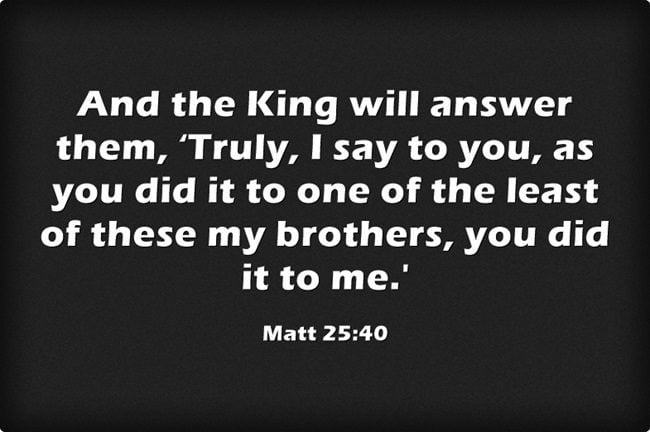Here are four great youth sermon topics they should love.
Joseph’s Life
The life of Joseph is a great story about life being unfair. The fact that Joseph’s brothers tried to kill him and then found out that they could make a profit by selling him to slave traders. They thought they had seen the last of Joseph and for all intents and purposes, he was dead; at least in their minds. They even deceived their father Jacob about it, making him endure needless grief over what he thought was the life of his favored son. Joseph was special to Jacob because he was the youngest born to his more beloved wife, Rachael, whom he loved dearly and so Joseph had a special place in Jacob’s heart. Imagine what he must have felt like for many years, since Joseph would be there for at least 8 years when his brothers finally came from grain due to a severe famine that had struck the whole region. The point is Joseph never complained and although God never directly communicated with Joseph, even in prison, it was said “And the Lord was with Joseph” (Gen 39:2). It probably didn’t look like it to us because he was sold into slavery, falsely accused and thrown into prison, forgotten about, and yet, “the Lord was with Joseph” (Gen 39:21). Never forget that God is always with you and even in the silence of God there is the presence of God (Heb 13:5) and will turn evil into His own good for us (Gen 50:20; Rom 8:28).
John Mark’s Second Chance
When the Apostle Paul said that he wanted to “go back and visit the believers in all the towns where we preached the word of the Lord and see how they are doing” (Acts 15:36), “Barnabas wanted to take John, also called Mark, with them, but Paul did not think it wise to take him, because he had deserted them in Pamphylia and had not continued with them in the work” (Acts 15:37-38) however “They had such a sharp disagreement that they parted company. Barnabas took Mark and sailed for Cyprus, but Paul chose Silas and left, commended by the believers to the grace of the Lord. He went through Syria and Cilicia, strengthening the churches” (Acts 15:39-40). Who was right? Was it Barnabas who was willing to give John Mark another chance after bailing out on them in the previous missionary trip? Barnabas thought John could make it this time but Paul didn’t, so they split up. Who was right? Both were as the gospel spread twice as fast than it would have with all four of them still together. Later, the Apostle Paul would commend John Mark for his faithfulness, apparently having heard the reports of Barnabas and John Mark in their missionary work. The point is, be an encourager because “love believes all things” (1st Cor 13:7) or gives people the benefit of the doubt or thinks the best of someone, regardless of what the circumstances look like. Be a Barnabas, which means literally, “the son of encouragement.”
Daniel’s Obedience
Daniel shows that true obedience to God is obeying when no one is looking. Really, God is looking, but humanly speaking we know that a person’s character is revealed by what they do in the dark or alone would be the same thing they do in the light, in front of everyone. Daniel was a young teen when he was brought into captivity but he was separated from the rest of the Jews because of his intellectual capability and when they brought Daniel some of the king’s food, “Daniel resolved that he would not defile himself with the king’s food, or with the wine that he drank. Therefore he asked the chief of the eunuchs to allow him not to defile himself” (Dan 1:8). Daniel was willing to risk his life to reject the king’s feast. He would have been outraged and Daniel wouldn’t have lived past the day. Maybe this is why Daniel tried to reason with chief of the eunuchs (Dan 1:9) but the chief was afraid for his own life saying “I fear my lord the king, who assigned your food and your drink; for why should he see that you were in worse condition than the youths who are of your own age? So you would endanger my head with the king” (Dan 1:10). Daniel couldn’t partake of the king’s feast because it likely had unclean foods on it and Daniel was not about to disobey God so he told the chief of the eunuchs, “Test your servants for ten days; let us be given vegetables to eat and water to drink. Then let our appearance and the appearance of the youths who eat the king’s food be observed by you, and deal with your servants according to what you see” (Dan 1:12-13). What happened was “At the end of ten days it was seen that they were better in appearance and fatter in flesh than all the youths who ate the king’s food. So the steward took away their food and the wine they were to drink, and gave them vegetables” (Dan 1:15-16). This reminds me of a great point that Dr. Charles Stanley often says, “Obey God and leave the consequences up to God.” I like that.
The Apostle’s Stand
There are going to be times in these young people’s lives when they will have to take a stand for what is right, even if it means jail. The example I am speaking about is the freedom that we have to preach the gospel. When the Jewish authorities arrested the apostles for proclaiming the good news of Jesus Christ, Peter and the apostles said “We must obey God rather than men” (Acts 5:29b). Thankfully, God’s favor came in their case, surprisingly from a wise Pharisee named “Gamaliel, a teacher of the law held in honor by all the people” (Acts 5:34) who said, “if this plan or this undertaking is of man, it will fail; but if it is of God, you will not be able to overthrow them. You might even be found opposing God!” So they took his advice” (Acts 5:38-39). I take it they didn’t want to risk fighting God. Sounds scary, doesn’t it? After this, “they beat them and charged them not to speak in the name of Jesus, and let them go. Then they left the presence of the council, rejoicing that they were counted worthy to suffer dishonor for the name” (Acts 5:40-41). They obeyed God over man and they paid a price for it, but look at how they responded. They didn’t go to the council demand equality. They grasped for humility and took the beating as a great blessing from God, which it truly is (Matt 5:10-12). The truth is, if you suffer for doing what is right, then you re blessed, but you must obey God over man’s law when they conflict, and this might bring suffering for their faith. It may help to keep in mind what Peter promised; “If you are insulted for the name of Christ, you are blessed, because the Spirit of glory and of God rests upon you” (1st Pet 4:14).
Conclusion
I would urge you to use biblical examples when teaching the youth, every single time. That’s because there is the power of God contained in the gospel of salvation (Rom 1:16) and it takes the Word of God, from a teacher of God, mixed with the Spirit of God, to make these youth into the children of God, and all for the glory of God.
Article by Jack Wellman
Jack Wellman is Pastor of the Mulvane Brethren Church in Mulvane Kansas. Jack is also the Senior Writer at What Christians Want To Know whose mission is to equip, encourage, and energize Christians and to address questions about the believer’s daily walk with God and the Bible. You can follow Jack on Google Plus or check out his book Teaching Children the Gospel available on Amazon.












